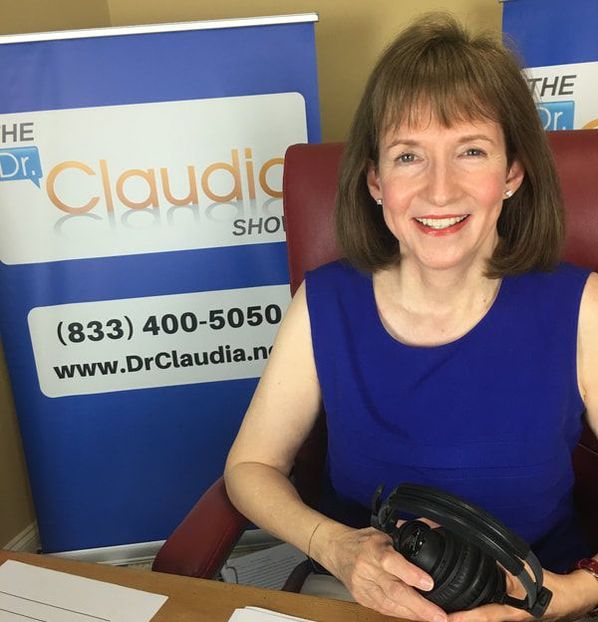
Instead of worrying, which causes us to suffer twice, take a good look at "what" you are doing and take action. Action reduces anxiety and it's a great chance to learn about exactly where everything runs off the rails.
I discussed a bit of history of how clinicians now have "permission" to diagnose full-on ADHD in adults. Before Edward Hallowell, M.D. and John Ratey, M.D. wrote Driven to Distraction, we persisted with calling it "Adult Residual ADHD" as if it was a tidbit left over from childhood and would resolve "in time". Baloney.
Adults with ADHD can tell you, in painful detail, how this condition has lead to multiple job, multiple relationships, multiple problems with bills not being paid and just an all-around high level of misery.
Psychiatrists and other treating physicians don't consistently prescribe anti-depressants anymore as the first course of treatment although depression is a huge issue in both the pediatric and adult populations.
I spoke about Russell Barkley's concept of "temporal (time) horizon" being short in those with ADHD. They see the "speck" in the distance and by the time they appreciate how close the deadline is, there's no way to get the work done. "You're fired!
He also talks about an economics concept of "temporal discounting" whereby most, if not all of us, are really motivated if the reward is immediate. Oops! Have to get that project done in 2 months in order to get the bonus?" If it was 2 weeks, you'd stand a better chance of experiencing that whole "payoff motivation" dynamic. Life just doesn't work that way.
I recommended that Arianna consider joining Attention Deficit Disorder Association to learn more about how "things have changed" since she was diagnosed and began medical management at age 11. There's a lot more science to appreciate. They have both "live" and "virtual" support group meetings. There's a lot to be learned from those who have "been there, done that".
I also recommended that she get a serious appointment (not just a "med check") with her prescribing physician, who I hope is a psychiatrist, to discuss the anxiety she's experiencing and also her persistent attentional issues.
Since Arianna's 35, it might be time to check in on hormone levels. She might be peri-menopausal and hormones significantly impact ADHD meds.
There are some great digital tools that use multiple sensory methods to get your attention and keep you on task. Look into them carefully to determine if they'll be more annoying than helpful. It all depends on your learning channel...visual, kinesthetic or auditory.
I've had some success in my practice with Time Timer (esp. for the younger group) and MIN TO GO which kinda gets your heart pumping as you sprint to finish a task.
Websites are incredibly seductive and we get on a site and suddenly, an entire hour has flown by. Consider Rescue Time which is an app that operates in the background and will let you know your level of productivity. Seriously, ADHD or no, we could all use this one.
There are a few others including Finish and 2Do, but I haven't had experience with these.
There's nothing like having a GIANT calendar and getting started on the project AS SOON AS IT IS ASSIGNED. You need time (as does everyone else) to make mistakes and to just deal with the life you have in front of you. These "pressure release" points are built-in guarantees to finish on time without making yourself "nervous and jerky".
First things first:
- Carve out 30 minutes to break the project down into manageable parts (called task analysis).
- Assign a REASONABLE time frame to accomplish each part along with a "mini-deadline". If you set the mini-goals too high, it will just be an exercise in frustration. Make the goals ridiculously easy.
- Set a specific amount of time to work. Again, brief and frequent work periods yield greater results than one big ol' long one. Ugh. Work 15 minutes 3 times a day. Increase the time frame by a few-minutes as you develop your "work muscles" and your ability to tolerate longer periods of concentration.
- Give yourself a reward for each step. Ta-da. No "temporal discounting" here!
- Miss a goal? Life interfere with living? Adjust the goals and keep going.
- Observe your thoughts and feelings. Miss a goal? Wring your hands? Stop and problem-solve. Appreciate your progress and applaud yourself for accepting the need to change the timeline. Everybody does it. Everyday. Everywhere. Just because you overshoot the exit doesn't mean you turn around and go home.
- DO NOT DO NOT DO NOT work longer than planned even if you feel good about what you're doing or if you are "in the zone". Don't take on the next mini-goal if you've finished early.
- The goals are to learn how to organize yourself, pace yourself, and recover from missteps.
- This will take time. Give yourself the time to practice correctly. Correct practice teaches solid habits. Develop an "approach" and not an "avoidant" mentality.
Make sure that your environment is conducive to working. Get all of your stuff together. Don't spent a lot of time "getting ready to get ready". Put on music or headphones. Get your snacks and get to work.
Liquid nitrogen in these products is causing severe injury and lasting nerve damage in the mouth, tongue and esophagus. A man held the product between his legs and received severe burns on his thighs. Think dry ice in your mouth. OH NO NO NO NO!
The FDA has provided a MedWatch link to report problems with this and any other product. It's a great resource to keep handy.
That's it! See you next week!
Claudia
Join me on Facebook at Dr. Claudia McCulloch.
At DrClaudia.net, click on the "Ask Me" button and send me a question.
Sign up for the Sunday newsletter. Don't miss a thing!



